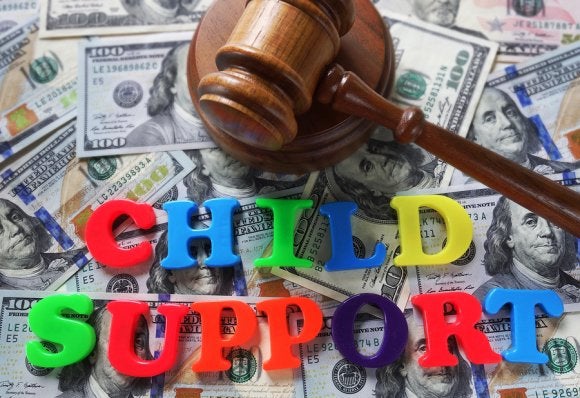-
What Are Some of the Common Issues in Child Custody Disputes?
Establishing a child custody, child access, and visitation arrangement (often known as a Parenting Plan) does not need to be a contentious battle. Family mediation serving Anne Arundel County can help the parents reach solutions that work for both households. During mediation, the parents may be reminded that they must come to agreements that are for the child’s best interests, which may not necessarily serve the interests of both parents. The mediation process can help parents resolve a number of disputes.

Decisions for the Child’s Upbringing
Legal custody refers to the parental right and responsibility to make major decisions on behalf of the child. These include decisions regarding the child’s education, health, religion/religious training, and welfare. During mediation, both parents can explain their preferences and goals for the child’s upbringing, and work toward solutions that benefit the child’s well-being. The parties can also define a dispute resolution agenda to help the parties work through future problems should one arise.
Access to the Child
A lawyer may recommend mediation for child custody disputes that involve access to the child. It is becoming more and more common for parties to share custody. Each family is different and there are various schedules such as “week on/week off”, 2/2/3, and many other alternative time sharing on 50/50 access. Even if the parents agree on the child’s primary residence, disputes may still arise regarding the parenting time or visitation schedule. For example, both parents may demand access to the child on holidays, birthdays, and weekends. Since ongoing access to both parents is generally beneficial for children, compromises often involve rotating weekends, holidays, and school vacations.
Access to Information About the Child
Mediation can help the parties think about and agree on how to exchange information about the childnre. Each parent should have unfettered access to school records, medical records, and similar information. In mediation, the parents can agree on appropriate methods of exchanging information and which information should be exchanged. This includes exchanging parent/teacher conferences, doctor’s appointments, report cards, interim reports, activity schedules, etc.
Uniformity of the Homes
Household uniformity is a crucial issue in child custody. Children need stability, regardless of whether are young, tweens, or teenagers. Children who are expected to follow two different sets of household rules, abide by different bedtimes and curfews, and meet two different standards of expectations can become confused, frustrated, resentful, and act out. Children who are in non-divorce homes are good at dividing and conquering parents. Children of divorce are better because parents may not have a good relationship. Mediation can help identify this issue so that the children know the parents are unified even if they are no longer together. By considering these issues during the Parenting Plan stage, the parties will
-
The Role of Mediation in Alimony Agreements
Maryland circuit courts encourage the use of mediation to resolve matters pertaining to family law. Divorce mediation near Glen Burnie is often intended to reach agreements regarding child custody and visitation; however, it’s also a viable option for establishing alimony agreements. A mediator can provide mediation services to help parties establish three different types of alimony.

The first type is alimony pendente lite, also known as temporary alimony. You and your spouse may agree to this type of alimony agreement to maintain the standard of living of both parties while the divorce is pending. It is not uncommon for parties who are unable to resolve all issues for a divorce to make temporary agreements pending the final resolution.
Mediation can also be helpful for establishing an agreement for rehabilitative alimony. This is the most common type of alimony awarded. It is intended to support the spouse of lesser earning capacity or formal education to rehabilitate to help the parties eliminate disparity of income. Usually one spouse will pay the other spouse alimony for a set period of time to allow the other party to complete a degree or vocational training program, or to advance in the workforce.
Less commonly, a spouse may enter into mediation with the goal of obtaining indefinite alimony, which has no distinct ending point. This situation usually occurs when one spouse is a substantial income earner while the other spouse will never be able to reach the same potential.
By using mediation to resolve alimony issues, it gives the parties flexibility and control to resolve this issue which Court does not provide. In Maryland, the Court must look to statutory factors to consider whether to award alimony or deny alimony. By the parties resolving the alimony in mediation, they can look to real issues facing the family, the financial needs and income of each spouse, what is actually needed, and what each party is willing to accept to help support their new dynamic. The parties can also decide whether to make the alimony modifiable or non-modifiable. A court only has the power to make alimony modifiable, which means either spouse could file for a modification at any time in the future (either for an extension or termination). Because no one knows what tomorrow will hold, the parties may agree on how to modify alimony should a party lose a job. The parties can also define when and how the alimony will terminate.
By parties resolving this issue in mediation and without the court intervention, the parties take control of their respective lives and reach a decision he/she can live with. This is better than putting it in the hands of a person you never met before and will never know how his/her decision impacts you and your family.
-
What Issues May Require Post-Divorce Modifications?
Not all matters resolved by a court order may be modifiable. However, if your circumstances have changed and you believe a post-divorce modification is called for, it’s best to contact an attorney in Baltimore as soon as possible. Your lawyer could help you seek a change in child support, for example. If you’re receiving child support payments, you may need to ask for an increase in payments if your child develops a serious illness or otherwise requires significant care. If you’re paying child support, mediation may be called for to lower the payments if you’re dealing with job loss or other substantial changes in circumstance.
Mediation for post-divorce modification could also address needed changes in alimony, or spousal support. If the Court awarded you alimony or ordered you to pay alimony, your alimony is subject to modification. If you entered into a written agreement for alimony, which was non-modifiable, you may still be able to modify your alimony if the other party is willing to agree. For example, if a payor has lost a job, the receiving spouse may agree to temporary reduction in exchange that the alimony will be paid later. The reason he or she may do this is to avoid the unnecessary emotional and financial costs of litigation.
Talk to an attorney about mediation services if you have reason to believe that the child custody arrangement ought to be modified. For instance, if you are currently the non-custodial parent, you might request custody of the child if the other parent is engaging in substance abuse, has been arrested, or has been neglecting the child. You may also wish to revisit the parenting plan and custodial arrangements due to the age of the child, the distance between the parents’ residences, and the need of co-parenting for help related to the extra-curricular activities of the child.


